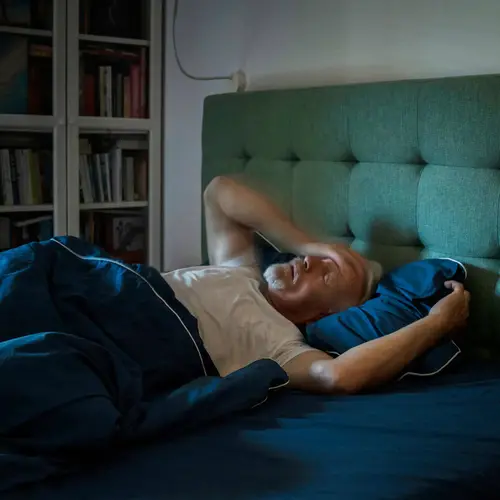Eyes glazing over in front of the computer screen? Nodding off at a meeting? Headed to the vending machine for a mid-afternoon pick-me-up?
You're not alone. Packed schedules at home and at work can make it all too easy to fall asleep on the job. But getting enough energy to make it through your workday and still have something left in the tank when you get home doesn't have to be a struggle.
Here are some tips to help you feel energized throughout the day.
- Start with a healthy breakfast. Mom was right. Studies have shown that eating breakfast improves alertness and concentration and helps you feel better, both mentally and physically. Try to eat a combination of carbohydrates for energy and protein for endurance. Some easy options include a whole-grain bagel with cheese or peanut butter, cereal with fruit and yogurt, or eggs with whole-grain toast and fruit.
- Don't just sit there. If you're stuck at a desk all day, that doesn't mean you have to be stuck to your chair. Get up and walk around as often as possible. Walk over and talk to a colleague rather than calling or emailing them, or go get a drink from the water cooler. Even the slightest movement increases blood flow, improves circulation, and sends oxygen and vital nutrients to the body and mind.
- Eat a light lunch. It doesn't take an expert to tell you that eating a huge lunch may make you more likely to nod off during that afternoon meeting as your body struggles to digest. Instead, spread out your calorie intake throughout the day and eat a light lunch containing a combination of different food groups and nutrients, such as a turkey sandwich on whole-grain bread and a piece of fruit or salad with grilled chicken.
- Skip the sugary snacks. Rather than hitting the vending machine for a candy bar at 3 o'clock, keep your desk stocked with snacks that will give you lasting energy. But a snack of complex carbohydrates and protein, like whole-wheat crackers and low-fat cheese, will provide a more lasting stream of energy for your body.
- Get enough sleep. It sounds like common sense, but two-thirds of older adults suffer from and many Americans don't get the minimum amount of sleep needed to stay alert. Aim for at least seven to 10 hours of sleep a night.

